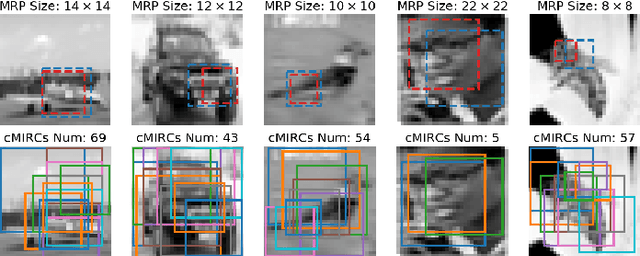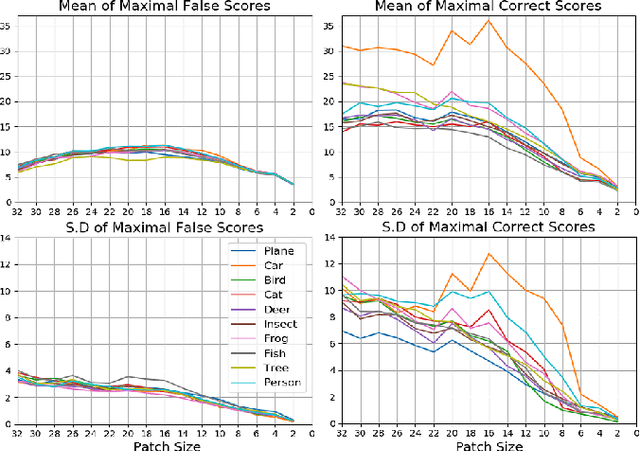On the Minimal Recognizable Image Patch
Paper and Code
Oct 12, 2020



In contrast to human vision, common recognition algorithms often fail on partially occluded images. We propose characterizing, empirically, the algorithmic limits by finding a minimal recognizable patch (MRP) that is by itself sufficient to recognize the image. A specialized deep network allows us to find the most informative patches of a given size, and serves as an experimental tool. A human vision study recently characterized related (but different) minimally recognizable configurations (MIRCs) [1], for which we specify computational analogues (denoted cMIRCs). The drop in human decision accuracy associated with size reduction of these MIRCs is substantial and sharp. Interestingly, such sharp reductions were also found for the computational versions we specified.
 Add to Chrome
Add to Chrome Add to Firefox
Add to Firefox Add to Edge
Add to Edge